The Epic Saga of Fallout: A Journey Through Post-Apocalyptic Wonders
- Jun 13, 2024
- 381
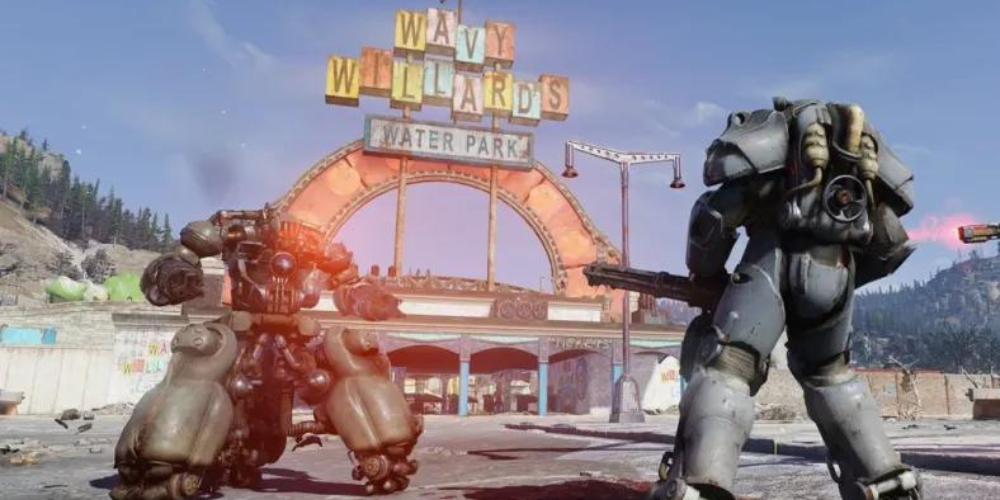
Origins: The Creation of Fallout
The "Fallout" series began as a revolutionary concept, combining elements of role-playing games with a rich narrative set in a post-apocalyptic world. Developed by Interplay Entertainment and first released in 1997, the game broke new ground with its unique setting and innovative SPECIAL system, which allowed for character customization and growth. Inspired by classic science fiction and Cold War-era fears, the series quickly captivated a loyal fanbase and established itself as a cornerstone in gaming history.
Fallout (1997): The Beginning of an Era
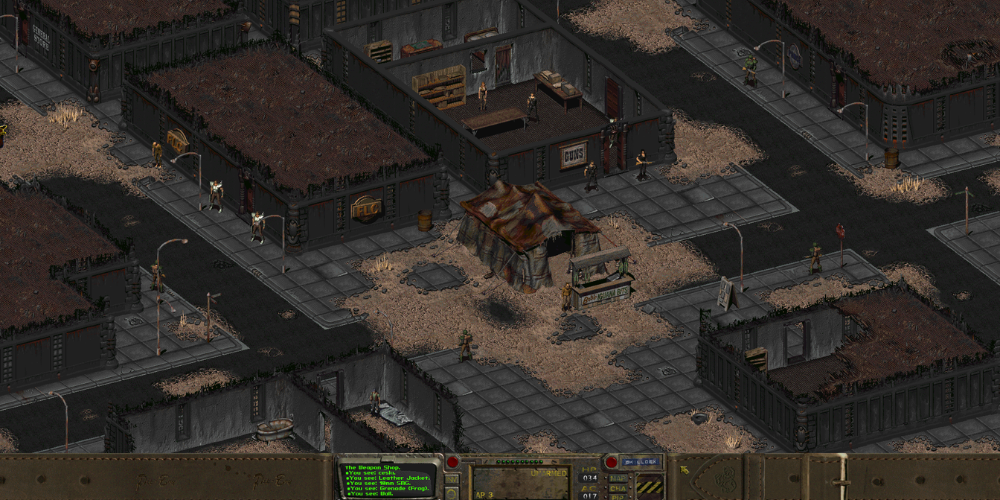
The original "Fallout" introduced players to a grim future world devastated by nuclear war. Set in the year 2161, it tasked players with finding a replacement water chip for their vault to ensure their community's survival. This game was praised for its open-ended gameplay, branching storylines, and dark humor, setting a high standard for subsequent titles. Featuring a rich narrative, it allowed players to make decisions that would significantly impact the game's outcome, from peaceful diplomacy to brutal violence.
The post-apocalyptic setting was meticulously crafted, with a detailed and immersive atmosphere that drew players into its desolate yet oddly captivating world. Characters were multi-dimensional, and interactions with them could lead to various alliances or conflicts, further enriching the gameplay experience. The game's mechanics, including the SPECIAL (Strength, Perception, Endurance, Charisma, Intelligence, Agility, and Luck) system, offered a deep role-playing experience that went beyond simple action and combat, giving players the freedom to develop their character in myriad ways.
All these elements combined to create a groundbreaking title that left a lasting legacy, influencing countless games that followed and establishing "Fallout" as a defining series in the RPG genre.
Fallout 2 (1998): Expanding the Universe
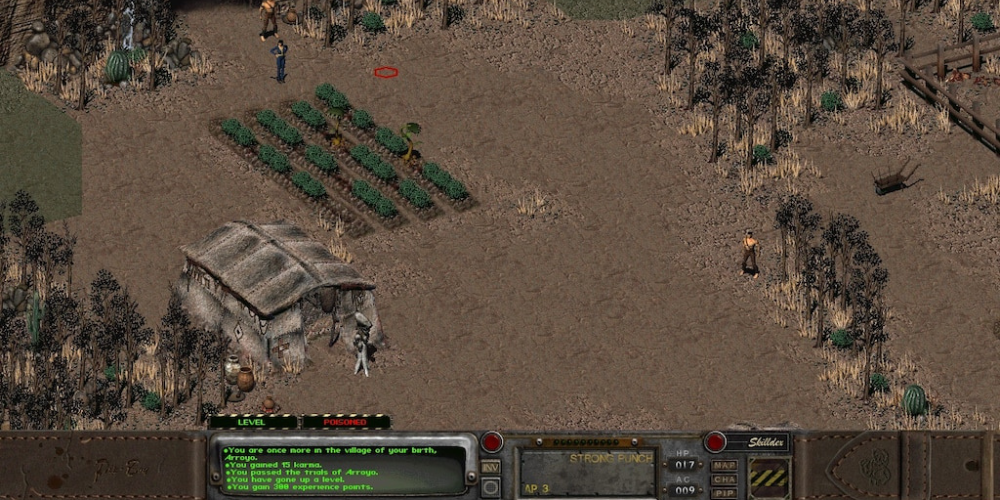
Released just a year after its predecessor, "Fallout 2" significantly expanded the world of the post-apocalyptic franchise, captivating fans with its larger map, an abundance of quests, and more intricate character interactions. The game is set 80 years after the original Fallout and places players in the shoes of the Chosen One, a descendant of the first game's protagonist, the Vault Dweller.
Tasked with saving their village from the brink of starvation, players navigate through a rich and detailed universe brimming with new and familiar characters, locations, and challenges. "Fallout 2" was lauded for its deeper narrative scope, introducing a plethora of side quests and subplots that provided a more immersive experience. The game also made notable advancements to the SPECIAL system, an acronym for Strength, Perception, Endurance, Charisma, Intelligence, Agility, and Luck, which underpinned character development and customization.
These enhancements allowed for a more sophisticated range of traits and abilities, making each playthrough unique and tailored to different play styles. Additionally, the sequel incorporated many new features, including more complex dialogue trees, varied combat scenarios, and an expanded
Fallout Tactics: Brotherhood of Steel (2001)
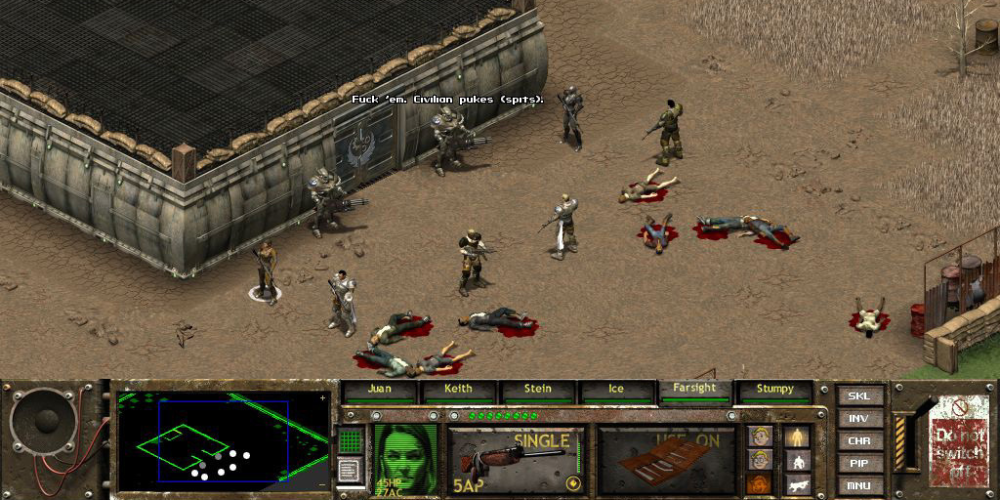
Diverging significantly from the main RPG series, "Fallout Tactics: Brotherhood of Steel" carved out its own niche by focusing more intensively on squad-based combat and strategic gameplay. This installment gave players the opportunity to command a team of Brotherhood of Steel initiates through a variety of challenging missions, each designed to test their tactical acumen and leadership skills.
The game masterfully blended elements of real-time and turn-based tactics, creating a unique fusion that stood apart from its predecessors. While it did not receive the same level of critical acclaim as the main Fallout titles, "Fallout Tactics" succeeded in adding a fresh perspective to the ever-expanding Fallout universe. Its emphasis on military strategy and unit management provided a compelling experience for players, deepening the lore and enriching the overall narrative of the Brotherhood of Steel within the series' iconic post-apocalyptic setting.
Fallout 3 (2008): A Rebirth
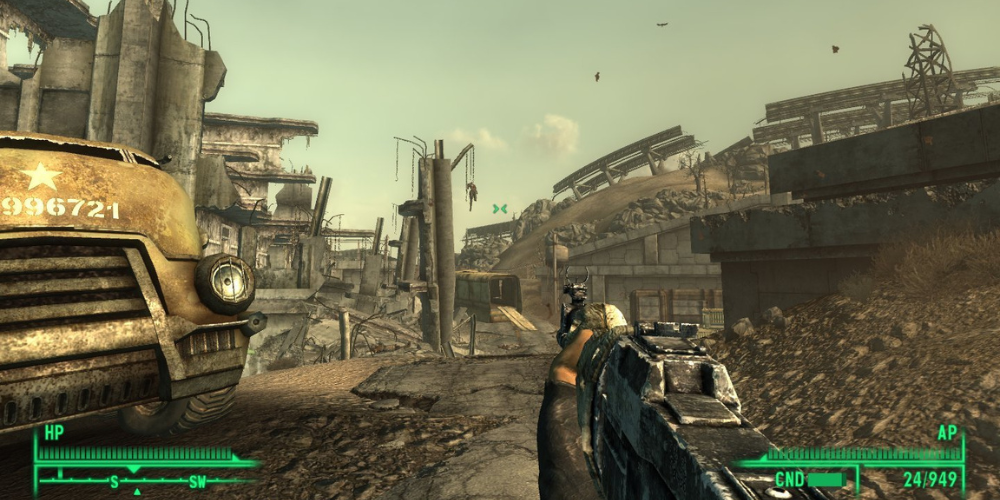
With Bethesda Softworks acquiring the rights to the series, "Fallout 3" marked a dramatic shift in gameplay and presentation. Transitioning from the isometric view of its predecessors to a first-person perspective, the game reintroduced players to a vast, open-world environment brimming with numerous quests, dynamic characters, and hidden secrets waiting to be uncovered.
This new perspective allowed for a more immersive experience, enabling players to navigate the post-apocalyptic landscape of the Capital Wasteland with a sense of immediacy and presence like never before. Bethesda meticulously crafted a world that was both desolate and hauntingly beautiful, with each location telling a story of its own, often through environmental storytelling and encounters with NPCs. The game retained the series' iconic dark humor and moral ambiguity, presenting players with choices that had both immediate and far-reaching consequences.
Whether deciding the fate of an entire settlement or choosing how to interact with various factions, players were constantly confronted with dilemmas that challenged their ethics and strategic thinking. "Fallout 3" earned widespread acclaim for its ambitious scope and depth, successfully rejuvenating the franchise and setting a new standard for open-world role-playing games. Its success paved the way for future installments and solidified "Fallout" as a beloved staple in the gaming community.
Fallout: New Vegas (2010)
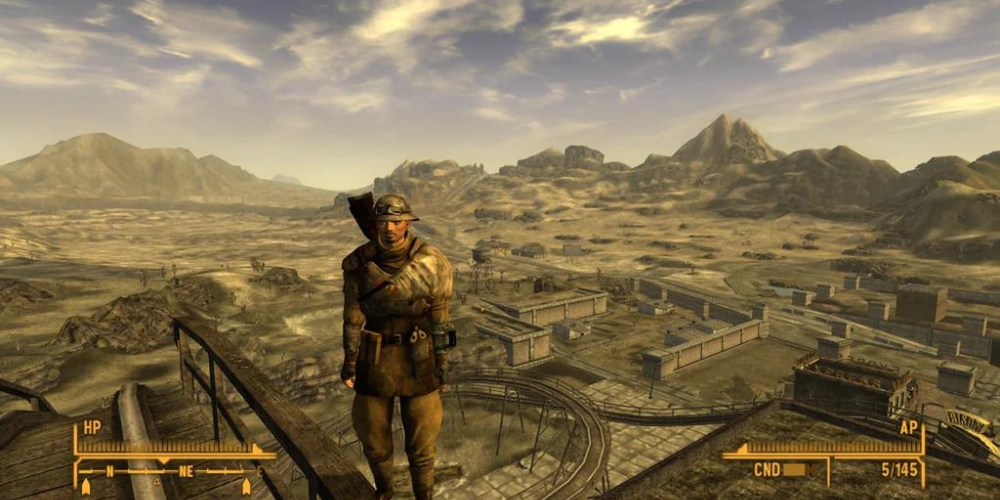
Developed by Obsidian Entertainment, "Fallout: New Vegas" expanded and refined the open-world formula established by its predecessor, "Fallout 3." Set against the hauntingly desolate yet striking backdrop of the post-apocalyptic Mojave Desert and the remnants of a once-glamorous Las Vegas, the game delivered a richly layered narrative that enthralled players.
Not only did it feature an immersive storyline with morally complex choices, but it also introduced multifaceted faction dynamics, allowing players to navigate allegiances with groups such as the New California Republic, Caesar's Legion, and Mr. House's New Vegas. This intricate web of alliances and enmities brought a level of depth and replayability that set it apart from other installments in the series.
Additionally, "Fallout: New Vegas" revisited several of the franchise's classic themes, including the struggle for survival in a harsh, irradiated world and the clash between advanced technology and primal human nature. Its rich lore, memorable characters, and the myriad of quests and side missions available made it an enduring favorite among fans and a distinguished entry in the annals of gaming history.
Fallout 4 (2015): Raising the Stakes
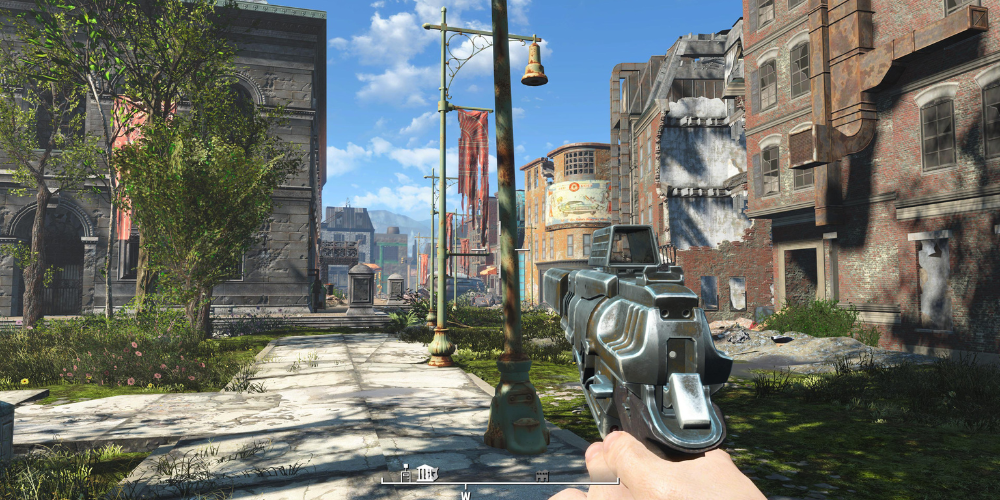
"Fallout 4" continued Bethesda's vision with improved graphics, a more interactive world, and enhanced combat mechanics. The game is set in the Commonwealth, which is the post-apocalyptic version of Boston, enriched with a vast and detailed open-world environment. One of the most notable features that "Fallout 4" introduced is the ability to build and manage settlements, offering players a deeper layer of customization and allowing for a more personal touch to their in-game experience.
Additionally, the main storyline diverged from previous entries by anchoring the narrative around the protagonist's quest to find their kidnapped child, adding emotional depth and urgency to the plot.
Despite some fans critiquing its simplified RPG mechanics, which they felt deviated from the series' more complex roots, "Fallout 4" was generally well-received for its ambitious scope, engaging gameplay, and the freedom it offered players to shape their own post-apocalyptic adventure.
Fallout 76 (2018): Venturing into the Multiplayer World
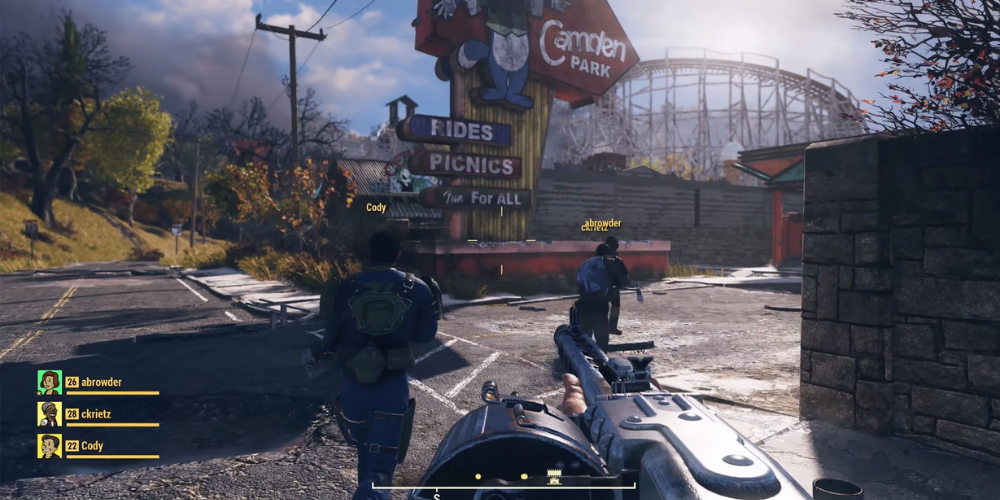
"Fallout 76" marked a significant departure from the traditional single-player experience that has long defined the Fallout series, introducing players to an expansive online multiplayer environment for the first time. The game is set in a time shortly after the Great War, thrusting players out of the confines of Vault 76 to undertake the monumental task of rebuilding a ravaged world. The overarching narrative focuses on the pioneering spirit and camaraderie required to establish civilization amid the post-apocalyptic surroundings.
Despite the promising concept, the initial launch of "Fallout 76" was plagued by technical issues, ranging from bugs and glitches to server problems, which, coupled with mixed reviews, dampened its reception among fans and critics alike. Nevertheless, Bethesda has demonstrated a steadfast commitment to enhancing the game post-launch. Through a series of consistent updates, patches, and expansions, they have worked diligently to address the early issues and enrich the overall gameplay experience.
These efforts have gradually transformed "Fallout 76" into a more refined product, better aligned with the expectations of its community. Ultimately, the game signifies a bold and, at times, controversial new direction for the beloved series, challenging.
The Future of Fallout
The future of the "Fallout" series appears promising, with speculation about new titles and potential updates to existing games. Bethesda is expected to continue expanding the Fallout universe, possibly through collaborations with other developers or even ventures into other media like television or movies. Fans eagerly anticipate what innovations and narratives the series will bring in the coming years.
Conclusion: A Lasting Legacy
The "Fallout" series has captivated gamers for over two decades with its compelling storytelling, rich world-building, and innovative gameplay mechanics. From its humble beginnings to becoming a cultural phenomenon, the series has consistently pushed the boundaries of what a role-playing game can achieve. As it continues to evolve, "Fallout" remains a testament to the creative power and enduring appeal of video games.
